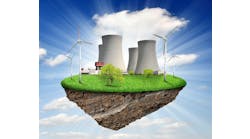With a new project organization, BASF says it is bundling and accelerating its cross-company activities to reduce its CO2 emissions by 25% by 2030 compared with 2018 and become climate neutral by 2050. The unit, called “Net Zero Accelerator,” focuses on implementing and accelerating projects relating to low-CO2 production technologies, circular economy and renewable energies.
The Net Zero Accelerator unit will be led by Dr. Lars Kissau as president, reporting directly to the chairman of the board of executive directors. The aim is to move projects to achieve CO2 reduction targets into the implementation phase over the next few years. By pooling expertise around renewable energies, alternative raw materials and CO2 reduction technologies, BASF says it will increase the speed of implementation and achieve scaling effects more quickly. In parallel, the operating divisions will continue to work on divisional projects to implement BASF’s CO2 reduction targets.
The new unit will manage ongoing cross-company projects including BASF’s activities in the field of circular economy such as ChemCycling or CO2-free technologies such as methane pyrolysis. BASF says it has also initiated various projects in the area of renewable energies and signed specific agreements in recent months, including a contract with Vattenfall to acquire a 49.5% stake in the Hollandse Kust Zuid wind farm with a total capacity of 1.5 gigawatts and a 25-year electricity supply contract to purchase 186 megawatts of capacity from Ørsted’s planned Borkum Riffgrund 3 offshore wind farm in the German North Sea.
The new project organization, based in Ludwigshafen, Germany, will start on January 1, 2022, initially with around 80 employees.
For more information, visit: www.basf.com

